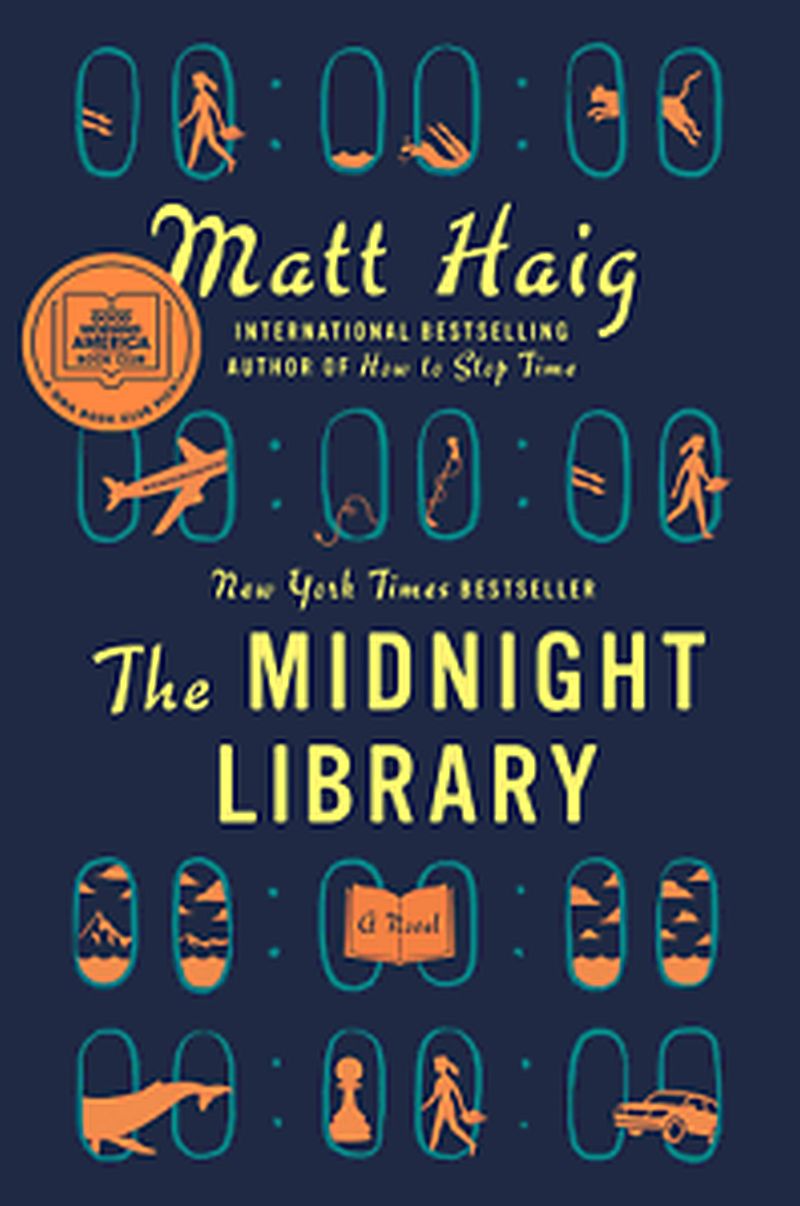Matt Haig
Viking

|
It is so easy, while trapped in just the one life, to imagine that times of sadness or tragedy or failure or fear are a result of that particular existence. That it is a by-product of living a certain way, rather than simply living. I mean, it would have made things a lot easier if we understood there was no way of living that can immunize you against sadness. And that sadness is intrinsically part of the fabric of happiness. You can’t have one without the other. from The Midnight Library |
All the lives you haven't lived (yet)
“Between life and death there is a library,” she said. “And within that library, the shelves go on for ever. Every book provides a chance to try another life you could have lived. To see how things would be if you had made other choices…”
Who hasn’t wondered what their life would be like…if only they hadn’t said no, but yes; if they’d taken that enticing job with its risks; if they had married Y instead of X, or hadn’t married at all; if they had been more disciplined, or more daring, or more deserving…
If your literary tastes lean toward the philosophical and the fantastical, you might look at The Midnight Library. Working off the idea of multiverses, and that we are living different lives simultaneously, it prompts the reader to ask which life would you prefer living if given the chance.
Nora Seed’s life has hit rock bottom. She is depressed. “It’s not clinical. The doctor says it’s situational depression. It’s just that I keep on having new…situations.” Her life has become “a black hole. A dying star, collapsing in on itself.” “No one needed her. She was superfluous to the universe.” “She went on Instagram and saw everyone had worked out how to live, except her.”—This is probably not the best book to give to a depressed friend.
Or maybe it is. Nora goes on to end her life (This is not advised) and finds herself in a vast library with Mrs. Elm, her school librarian who had guided and supported Nora when a child. Mrs. Elm now introduces her to this wondrous collection of books. “Every life contains many millions of decisions. Some big, some small. But every time one decision is taken over another, the outcomes differ. An irreversible variation occurs, which in turn leads to further variations. These books are portals to all the lives you could be living.”
And Nora is off, exploring this library of her life, or lives. Not surprisingly, it’s not as simple as it seems (I want to check out only happy books, please.) She finds that even the lives where she is tremendously successful contain crises, disappointments, and defeats. As Mrs. Elm explains, “You can choose choices but not outcomes.”
This is a book of wisdom in narrative form, and like the fables, sagas, eddas, legends and myths through the millennia, attempts to teach us how to live the best life possible, in this or any universe.
This review first appeared in The Columbia River Reader (August 15, 2021.) Reprinted with permission.



